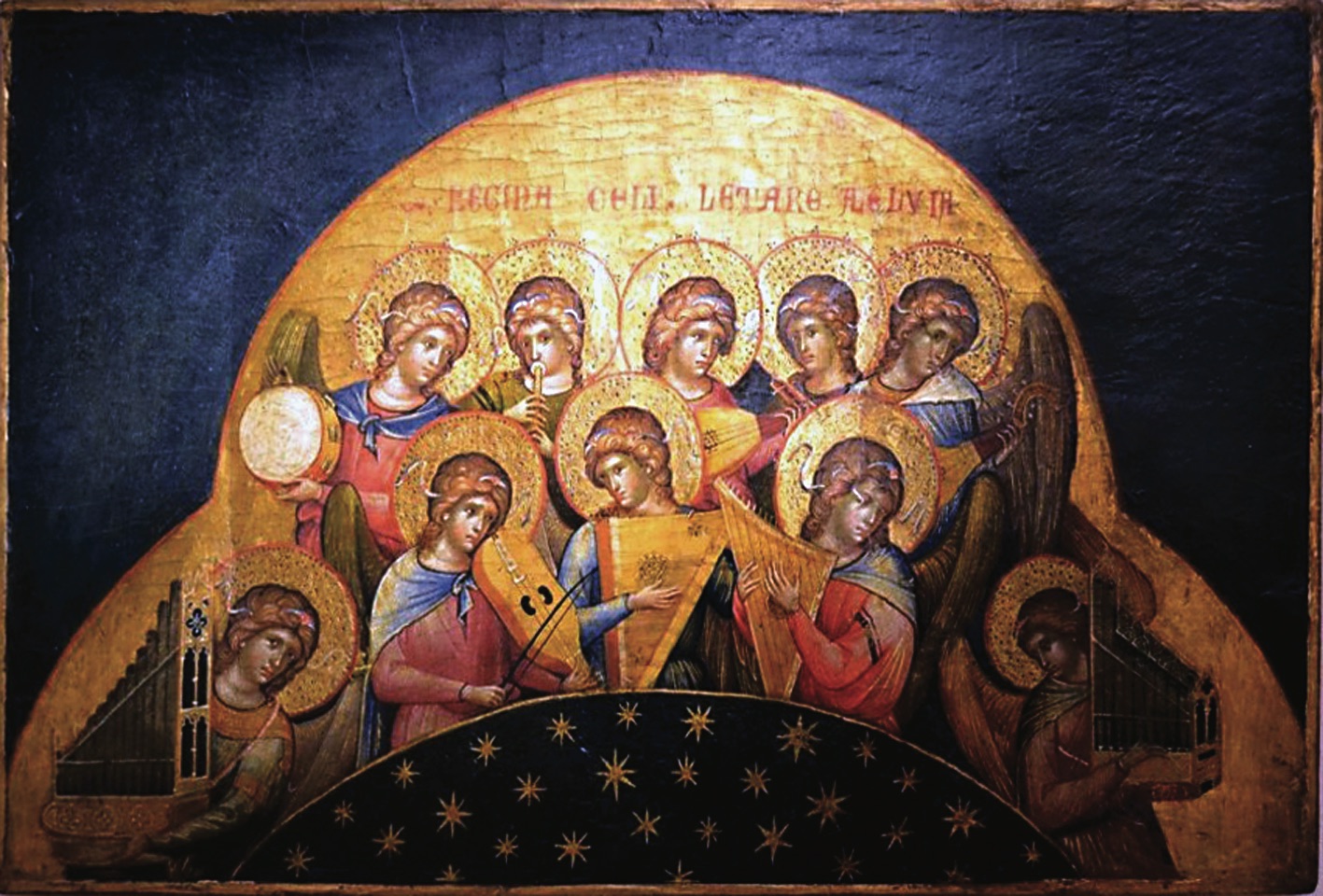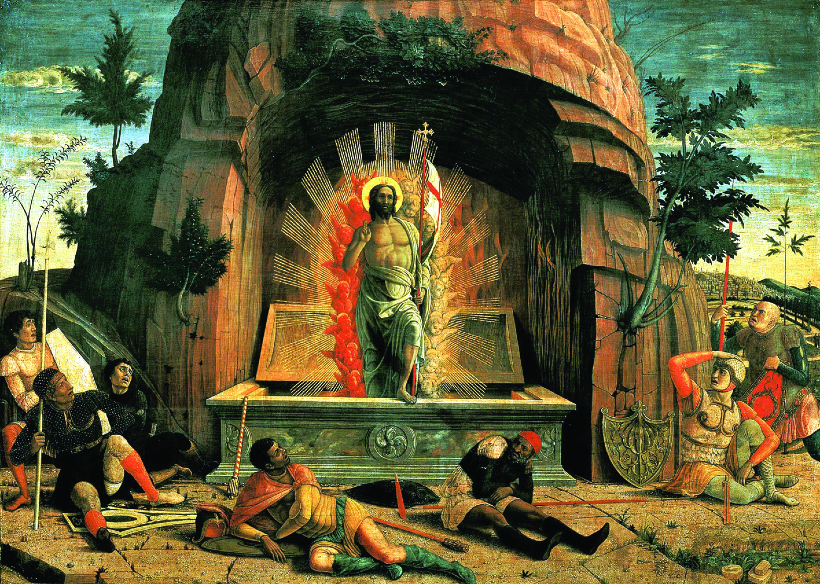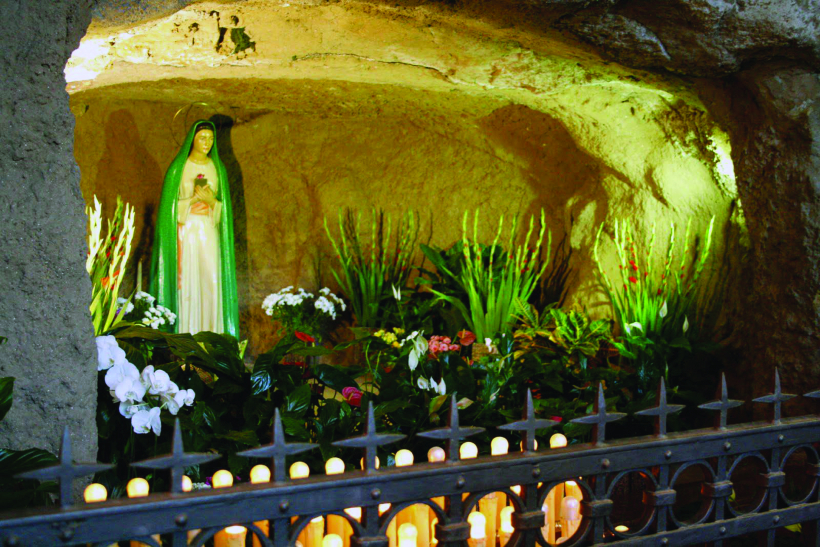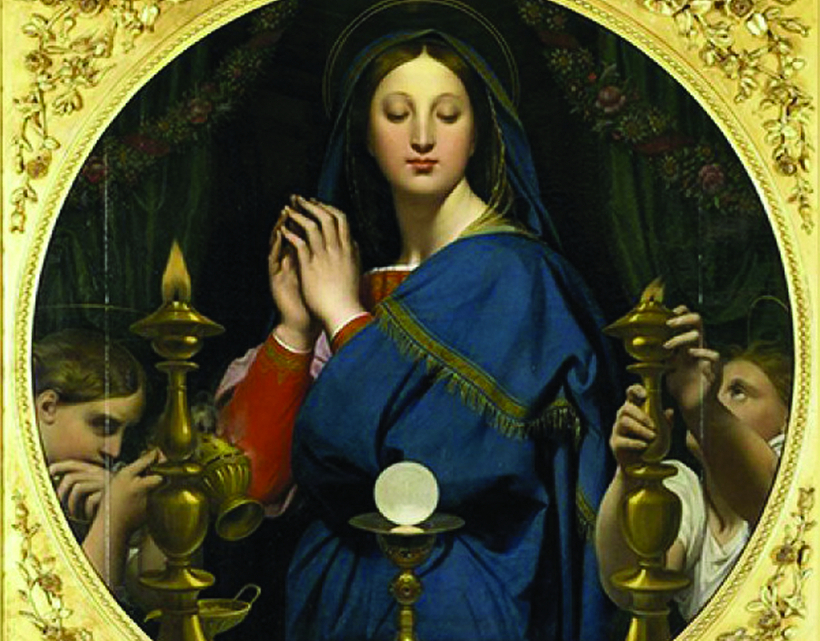Pope Francis gave an eloquent homily at his morning Mass in the chapel of the Domus Santa Marta on November 23, the Feast of Pope St. Clement I.
Clement was a disciple of St. Peter and was Pope from 92 to 99 A.D. (the exact years are not fully certain). He was considered by many Christians in the early Church, like the North African theologian Tertullian, to be the first actual successor of St. Peter, even though the list of the Popes of Rome usually names Linus and Cletus as intermediaries between Peter and Clement. Tertullian tells us that Clement was “the first Apostolic Father of the Church” and was selected by Peter himself to be his successor.
In this homily, the Pope speaks of the “widow” in the Gospel “whose only hope is in the Lord.”
As the liturgical year comes to a close and we begin to anticipate the coming of Jesus at Christmas, we are reminded of another such woman, whom we commemorate on the cover of this issue and celebrate on December 8 in virtue of the conception and birth of her daughter, the Virgin Mary — the long-barren St. Anne, whose barrenness was a kind of “poverty.”
Yet St. Anne never lost her confidence that the Lord would provide for her. When she did finally conceive the child she and Joachim had longed for and prayed for, it was her joy to offer that child, her only daughter, her “one treasure,” back to the Lord.
Pope Francis spoke about Anne, the mother of the Virgin Mary, at a Mass last year on her feast day. “I like to call St. Anne ‘Jesus’ grandma’… While I was incensing, I saw something beautiful: the statue of St. Anne is not crowned; her daughter, Mary, is crowned. And this is beautiful. St. Anne is the woman who prepared her daughter to become queen, to become queen of heaven and earth. This woman did a good job! …I wish to encourage all of you to experience the feast of the patron saint free of all prejudice, in the pure expression of the faith of a people who recognize themselves as the family of God and which strengthens the bonds of brotherhood and solidarity. Perhaps St. Anne heard her daughter Mary proclaim the words of the Magnificat, which Mary surely repeated many times: ‘He has put down the mighty from their thrones, and exalted those of low degree; he has filled the hungry with good things’ (Lk 1:52-53). May she help you to seek the sole treasure, Jesus, and teach you to discover God’s criteria for behavior; He overturns the world’s judgments and comes in aid of the poor and the small ones and fills the lowly with good things, those who entrust their existence to Him. Have hope, the hope which does not disappoint. And I like to repeat to you: do not let them steal your hope!” —Christina Deardurff
The Stranger and the Widow
November 23, 2015: Pope Francis’ Morning Homily
The Church’s “one treasure” is Christ, and she risks becoming “lukewarm, mediocre and mundane” if she places her security “in other realities.” Thus, the Pope celebrated Mass at Santa Marta on Monday morning with a call to repeat: “Come, Lord Jesus!”
Francis began his homily by referring to “both of the Readings of the day’s Liturgy,” one from the Book of the Prophet Daniel (1:1-6, 8-20) and the other from the Gospel according to Luke (21:1-4), which “speak to us about needy people, particularly in the tradition of Israel: the stranger and the widow.” And, he continued, “the third needy person is the orphan.”
Explaining the First Reading, Pope Francis said that “these young people who had been brought to Babylon were strangers: they were far from their homeland and decided to remain faithful to their traditions, to the Law of the Lord.” However, “the character that draws the most attention in this Gospel is the widow.” In the Bible, the Pope affirmed, “widows appear many times, so many times, both in the Old and New Testaments.” A widow, Francis continued, “is a woman who is alone, she does not have a husband to protect her; a woman who must make do as she can, who lives on public charity.”
In particular, he said, “the widow of this passage of the Gospel, whom Jesus shows us, was a widow whose only hope was in the Lord.” And “when Jesus saw those who put in offerings at the Temple, he saw this woman who put in only two coins and he said: ‘This poor widow has put in more than all of them; for they all contributed out of their abundance, but she out of her poverty put in all the living that she had.’”
“In the widows of the Gospel,” the Pope said, “I like seeing the image of the ‘widowhood’ of the Church who is awaiting Jesus’ return.” Indeed, “the Church is the bride of Jesus, but her Lord has left, and her one treasure is her Lord.” And “the Church, when she is faithful, leaves everything while she waits for her Lord. However, when the Church is not faithful, when she is not very faithful or does not have much trust in her Lord’s love, she too seeks to make do with other things, with other securities, more from the world than from God.”
“The widows of the Gospel,” the Pontiff continued, “tell us a beautiful message of Jesus about the Church.” Similarly there is the woman “leaving Naim with her son’s casket: crying alone.” Yes, “very kind people accompanied her, but her heart was alone!” It is “the widow Church that weeps when her children die to the life of Jesus.”
Then there is the other woman “who, in order to protect her children, goes to the evil judge: she makes his life impossible, knocking on his door every day, saying, ‘Do justice for me!’” And “in the end,” that judge “does justice.” And “it is the widow Church who prays, who intercedes for her children.”
But “the heart of the Church is always with her Bridegroom, with Jesus. He is above. Our soul too, according to the Fathers of the Desert, is very much like the Church,” said the Pope. And “when our soul, our life, is closer to Jesus it is separated from many worldly things, useless things, which do not help and which separate us from Jesus.” Thus, “it is our Church that seeks her Bridegroom, that awaits her Bridegroom, that waits for that meeting, that weeps for her children, fights for her children, and gives all that she has because her interest is her Bridegroom alone.”
“In these final days of the liturgical year,” Pope Francis said, “it will be good for us to ask ourselves whether our soul is like this Church that wants Jesus, whether our soul turns to its Bridegroom and says: ‘Come, Lord Jesus! Come.’” And whether “we set aside all these things that aren’t useful, aren’t helpful to faithfulness, as the youths in the First Reading set aside those meals that did not help their faithfulness.”
“The ‘widowhood’ of the Church,” the Pope explained, “refers to the fact that the Church is waiting for Jesus, this is one reality: she can be a Church faithfully anticipating, trustfully awaiting her husband’s return, or a Church unfaithful to this ‘widowhood,’ seeking security anew in other realities…. The lukewarm Church, the mediocre Church, the worldly Church.” And, Pope Francis offered in conclusion, “let us also think about our soul: does our soul seek security in the Lord alone, or does it seek other securities that do not please the Lord?” Thus, “in these final days, it will be good for us to repeat that last verse of the Bible: ‘Come, Lord Jesus!’”








Facebook Comments